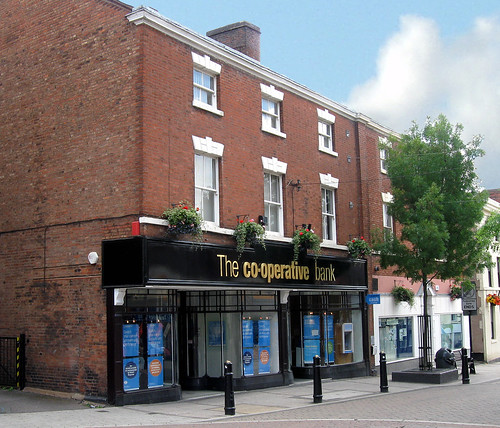Removing the ‘friction’ from the last mile of customer service – Interview with Yuval Brisker of TOA Technologies
December 6, 2013Customer service done different and fast reinvention of a faceless product category – Interview with Craig Dubitsky of hello
December 13, 2013This post originally appeared on my Forbes column here.
Your customer experience or the service you deliver is not just about how your employees treat or serve your customers, it’s also affected by corporate strategy and the actions of your executives.
Over the last couple of months the press in the UK has spent a lot of time focusing on two things:
- Most of the large UK energy firms have been putting their prices up, with some firms reporting price rises as high as 11% for gas or electricity. This has created a lot of uproar and concern amongst consumers, particularly with the onset of winter and many in the UK facing ‘fuel poverty’; and
- The antics of Paul Flowers, the Co-operative Bank’s former chairman, who was arrested last week in connection with the supply of illegal drugs. He has now been removed from his post.
Now, those stories are interesting in themselves. But, when it comes to customer service and customer experience, what I found more interesting was the following:
- A story in The Evening Standard which reported that complaints have surged at the ‘Big 6’ energy firms in the UK, on the back of their recent price rise announcements; and
- The release of a report by Nunwood’s Customer Experience Excellence Centre which shows that The Co-operative Bank has dropped out of the UK’s top 100, when it comes to the delivery of customer experience. This is compared to a position of 26th out of 100 last year. (The report, which is the 4th in an annual series, aims to assess the quality of customer experience that is delivered by the UK’s top companies).
Most of the customer reaction and the decline in the perception of these companies is not down to a decline in operational effectiveness.
Amazon and Starbucks in the UK have also suffered negative effects on their customer experience rankings over the last year as a result of a number of stories in the press about their accounting policies and how much UK corporation tax they pay. According to the Nunwood report, Amazon has fallen to 4th in the rankings after three years at number 1, whilst Starbucks, like the Co-operative Bank, has dropped out of the top 100.
What these stories highlight is the impact corporate and management behaviour has on a firm’s reputation, integrity and on the perceptions of the experiences and service they deliver.
These examples highlight what Maya Angelou meant when she said:
“People will forget what you said. People will forget what you did. But people will never forget how you made them feel.”
So, when aiming to improve customer experience we need to remember that it’s not just a function of what your employees do but also what bosses and firms do too.
This post originally appeared on my Forbes column here.
Thanks to harrypope for the image.





4 Comments
Adrian,
My father used to say to me “do as I say, not as I do” though he used to have his tongue firmly placed in his cheek at the time.
Is it a surprise that the way the people at the top of the organisation act guides the way those at the bottom perform?
James
Hi James,
My father used to say the same thing with his tongue in his cheek too.
However, I’m not sure that their reactions always affect performance at other levels of the organisation but they certainly affect customer perceptions of performance.
Adrian
I agree that customer experiences impacts on corporate’s behavior. I believe that it can be use as a guide for the business in order to improve and be better especially in customer satisfaction.
So true. A bad behavior in a company really gives a big impact in the kind of support given to the customers. Moreover, if this is treated and handled well, a company’s behavior may change from bad to being better.